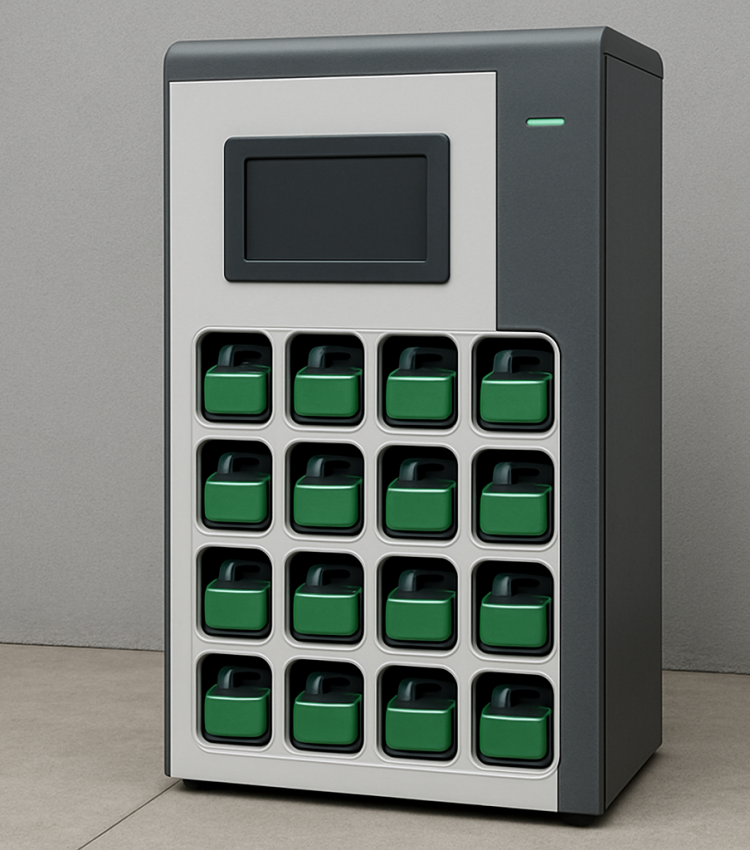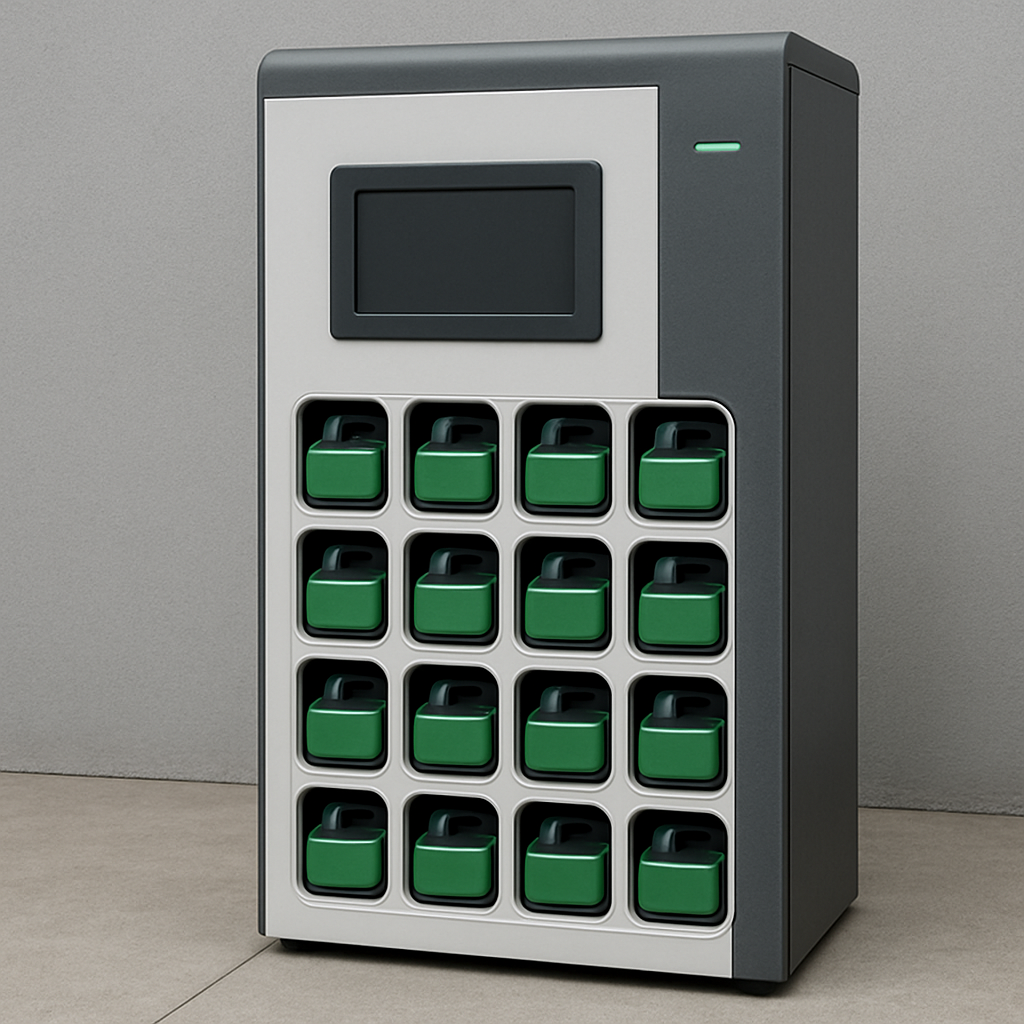
Battery Swapping Station
A battery swapping station is a facility owned and operated by a private entity, such as a fleet operator or logistics company. These stations are typically accessible only to vehicles owned or managed by the entity. Battery swapping can be a convenient solution for electric vehicle fleets, allowing quick battery replacement without downtime. These stations are often located in strategic locations, such as near fleet depots or along regular operational routes.

A battery swapping station allows electric vehicle (EV) users to quickly replace their discharged battery with a fully charged one, instead of waiting to recharge it.
You drive your EV to a swapping station, remove the depleted battery, and replace it with a fully charged battery—typically done in a few minutes by station staff or an automated system.
Battery swapping is mainly used by:
- Electric two-wheelers
- Electric three-wheelers (e-rickshaws)
- Some light electric commercial vehicles.
The vehicle must be designed with a removable/swappable battery system.
Yes, battery swapping is safe if the process is carried out at certified stations following standard safety procedures and using approved battery technologies.
No, most swapping systems are brand-specific or network-specific. Interoperability is limited unless the station supports open standards or multiple brands.

